Alex Temblador is the Mixed Latine award-winning author of Half Outlaw and Secrets of the Casa Rosada, which received numerous industry accolades including Kirkus Reviews’ Best of YA Books 2018 and the 2019 NACCS Tejas Foco Young Adult Fiction Award. She is a contributor to Living Beyond Borders: Growing Up Mexican in America and Speculative Fiction for Dreamers: A Latinx Anthology, and a travel, arts, and culture writer with pieces appearing in Conde Nast Traveler, Travel + Leisure, and National Geographic, among many other publications. She lives near Dallas, Texas.
I had the opportunity to interview Alex, which you can read below.
First of all, welcome to Geeks OUT! Could you tell us a little about yourself?
Thank you – I’m so glad to chat with Geeks Out. My name is Alex and I’m the award-winning author of Secrets of the Casa Rosada and a brand-new novel called Half Outlaw. I grew up in Wichita Falls, Texas, but after moving between three other states, I made my way back to the Lone Star state and currently live and write in a 102-year-old haunted house that I bought in Dallas in 2020. Other fun fact: I’m half Mexican, half white, but I identify as Mixed or Mixed Latine.
What can you tell us about your book, Half Outlaw? Where did the inspiration for this book come from?
Back in 2013, I was sitting between my uncle and my grandfather on the couch at a Thanksgiving celebration. My uncle turned to me and said, “You know I’m an outlaw, right?” I said, “Sure.” He then replied, “That makes you half outlaw.” It was the coolest phrase I’d ever heard, even if it didn’t really make much sense as to why he was saying it or what he meant. But it reminded me of how people always ask, “What are you?” when they’re trying to inquire about my ethnicity. Growing up, I used to say, “half Mexican” or “half Mexican, half white.” The phrase “half outlaw” reminded me of that and I thought – what makes someone a half outlaw? A story about a Mixed woman and her outlaw family unfolded from there.
In terms of what Half Outlaw is about… it’s a road trip novel with magical realism elements and a structure that jumps between the 1970s and 1990. It follows Raqi (pronounced like ‘Rocky’), a half-Mexican, half white lawyer who must go on a cross-country motorcycle ride in honor of the white uncle, Dodge, who raised her after her parents died. Dodge had a substance abuse problem and raised Raqi within the community of his one-percenter motorcycle club called the Lawless. (Only one-percent of motorcycle clubs are involved in illegal activities, according to the FBI. Hence the term, ‘one-percenter.’ The fictional club in the novel, the Lawless, sell drugs and guns.) Raqi hadn’t talked to Dodge in 10 years, but she agrees to go on the motorcycle ride in exchange for the contact information of her Mexican grandfather, whom she didn’t know existed.
As readers follow Raqi on this road trip where she meets some interesting people, I introduce chapters from Raqi’s past, so you get the full sense of what it was like for her to be raised in a violent, abusive, racist, and neglectful environment and how this trip affects her perspective of her past and person. Half Outlaw is a thrilling ride, but it can get pretty dark at times. Although the idea for Half Outlaw sparked in 2013, I wrote the full draft in 2017 when I was trying to deal with how the white side of my family behaved when Trump was elected and how that impacted me as a Mixed person of color.
Readers might find themselves uncomfortable at times, or even pulled in different emotional directions while reading the book. This was intentional. I tried to take feelings that I’ve had as a Mixed woman in different situations – whether it’s been among my family, friends, school, or career – and put them in the story.
What drew you to writing, particularly fiction and travel writing, which seems to be major elements of your writing journey?
I’ve always loved fiction. As a child, I read voraciously, especially books that let me explore different parts of my personality that I wasn’t sure how to express outwardly. I loved going on adventures as a woman warrior, a queen, a witch, or a historical figure who had insurmountable obstacles in their way.
When I decided to pursue writing, I always had the intention to become a full-time novelist one day. After receiving my MFA in Creative Writing, I lived in Los Angeles writing subtitles and captions for TV and film, and then moved to Dallas a year later to become a freelance writer. One of my first gigs was with a TripAdvisor-owned outlet that doesn’t exist anymore. Within this job, my love for traveling expanded and I discovered that I could specialize in travel writing – so that’s what I did. My travel writing career has taken me to so many beautiful places like Thailand, Japan, Serbia, Bonaire, Mexico, Belize, Switzerland, Germany, and many more.
I think it’s pretty awesome that I’ve been able to marry my travel and fiction writing into Half Outlaw, which is, in a way, a fictional travel narrative as Raqi travels between California and Arkansas throughout the book.
How would you describe your general writing process?
When I’m working on a new novel, I typically write for 20 minutes as soon as I wake up. If I want to write more later in the day, then I’ll write more. However, it’s not something I make myself do. Once the first draft is complete, I let it sit for a few weeks and then pick it back up and start editing on the computer. When that’s complete, I edit it by hand, and then again on the computer before sharing it with a beta reader or my literary agent.
For me, the most important part of the writing process is the editing phase. Writing the first draft is necessary but it’s in the shaping of the story through editing that I find the most joy and excitement.
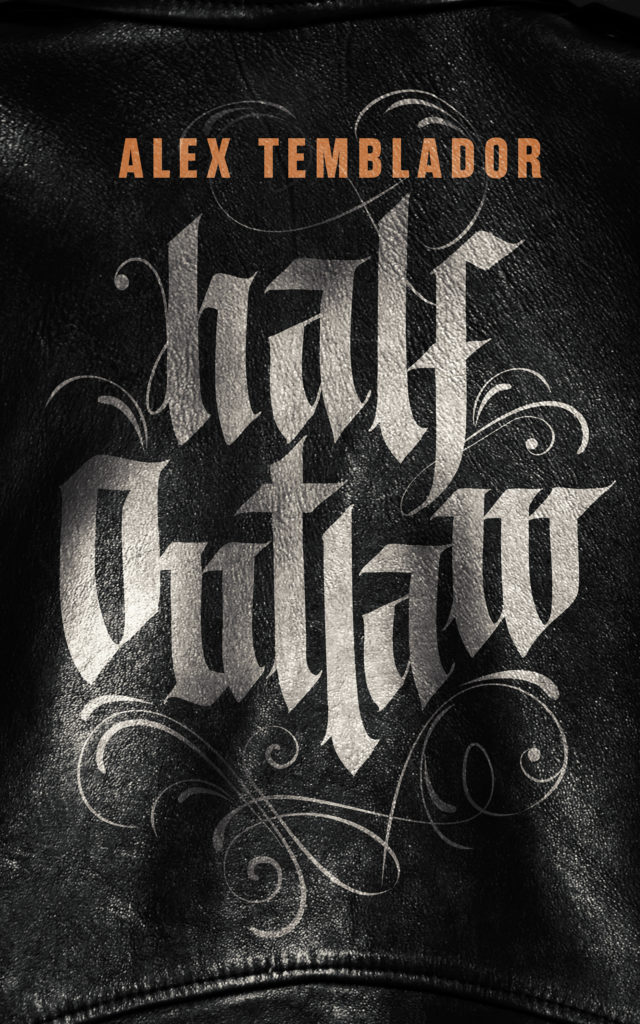
What drew you to writing? Were there any books or authors who you believe inspired you and/or influenced your own personal style?
Although I write some non-fiction, I’ve found that writing fiction has allowed me to process my emotions and my experiences in a way that feels safe to me. That’s ultimately what drew me to writing. It was a safe space to ask questions, work through my trauma, and tell stories that I hope will benefit the people who read them.
I would say that I was influenced by a wide range of women of color writers like Amy Tan, Sandra Cisneros, Isabel Allende, Jhumpa Lahiri, and Louise Erdrich. However, it was Ana Castillo and her novel, So Far From God, that impacted me in a significant way as a writer. I can recall reading the first page of the book and having this connective moment between my heart and mind that said, “This is it. This is what I’ve been trying to write.” I hadn’t realized that I was looking for a writing language until I recognized it in Ana Castillo’s style of magical realism. If you compare our work, I think our writing styles differ greatly, but her novel was the catalyst to me exploring the magical realism genre and learning about how it’s connected to my Mexican identity. Everything came full circle when Ana Castillo blurbed Half Outlaw. I was beyond honored.
Half Outlaw is a magical realism novel, and it’s something you’ll notice in the first sentence of the book. It may be a little jarring if you don’t read a lot of magical realism, but you grow used to it very quickly and find that it plays a role in Raqi’s perspective of the world and the trauma she’s endured.
What advice would you have to give to any aspiring writers?
Write the story that you want to write, rather than the story you think is going to be sold or something that is ‘highbrow’ with flowery language and winding sentences. Trends in the publishing industry are so fickle and you can’t really predict what will be “hot” next. For instance, books that you read today were bought two years ago, so those trends have already come and gone. Don’t waste your time trying to write to a trend.
Even more importantly, don’t try to write in a style that doesn’t come to you naturally. I think that’s the biggest mistake that writers make when they first start writing. They try to write like their favorite authors or writers and when it isn’t the same, they get disappointed, spiral out, and quit writing. Write what comes naturally. You’ll find more success and joy in this approach.
On a last note: put most of your effort toward editing. Half Outlaw has gone through a countless number of edits, thanks to feedback I received from two beta readers, my literary agent, my publishing editor, and an in-house publishing editor. No book is well written in the first draft. Editing is the key.
What’s a question you haven’t been asked yet but that you wish you were asked (as well as the answer to that question)?
Your main character, Raqi Warren, is Mixed, and it’s something that you discuss in the Acknowledgements. How does her identity play into the story and why is it important?
Raqi is half-Mexican, half white, just as I am, and like me, she identifies as “Mixed.” People who are Mixed may identify as biracial, multiracial, or as “half-x and half-x.” It’s entirely up to the Mixed person to choose their personal identifier and this should be respected by others.
I like to explain what it means to be Mixed, because despite this identity being one of the fastest growing populations in the U.S., we still don’t see a lot of fiction that features main characters who are Mixed. I didn’t grow up reading books where the characters were Mixed like me. It wasn’t until graduate school that I read short stories and books by Mixed authors with Mixed characters – and only because I went searching for it (these stories weren’t assigned to me to read). Today, I’m sorry to say, that Mixed representation in fiction is still considerably low, and most books with Mixed characters aren’t even written by Mixed authors.
I wrote this book to work through the experiences that I’ve had as a Mixed woman in a world that was designed for monoracial (single race) and monoethnic (single ethnicity) peoples. For Half Outlaw specifically, I wanted to focus on the impact that monoracial family members have on Mixed family members.
In Half Outlaw, you’ll see how Raqi navigated growing up in an all-white community as a Mixed girl with brown skin. While her “family” loved her, they also caused her harm in a variety of ways from using slurs in reference to people of color to speaking negatively about Mexicans and Mexican Americans. This is something I’ve experienced in my own life and with my own family, and I hoped that by writing this book, more Mixed people feel seen and understood. I also hope that family and friends of Mixed people can gain some insight into their relationships and behavior through Raqi’s story.
Are there any other projects you are currently working on that you feel free to speak about?
I have two books in the works – another adult fiction novel that examines themes of sexism in mythology, motherhood, and loneliness, and a non-fiction book that I hope will be beneficial to creative writers. I’m trying to conceptualize a new novel idea but it’s in the very beginning stages of the outline and free writing process. I don’t know if it’ll end up being the next novel I write. I tend to write out a few ideas that come to me and then put half of them aside when I discover that the story doesn’t have legs. However, this idea has been brewing for well over a year in my mind and a few things have recently come together that make me think it’s the next story I need to tell. All I’ll say about this new novel idea is that it’ll have a cemetery, a slight love story, and examine the politics of women’s bodies.
What books/authors would you recommend to the readers of Geeks OUT?
I could suggest book titles or authors, but I’d rather persuade you to read authors who have a different identity than you – whether that differing identity be in terms of race, ethnicity, sexual orientation, gender identity, abilities, religion, culture, class, etc. As readers, I think we get too comfortable reading books where we feel ‘at home’ or ‘seen’ or books that let us escape from our day-to-day life. While those books are necessary and may be good for our mental health, I think the best things we can do for ourselves is to read stories from perspectives that don’t align with our own.
In reading books by authors who have different identities than us, we may feel uncomfortable at times, however, that’s a small thing in comparison to the benefits we receive. In learning about a different identity, perspective, or life experience, we develop empathy and understanding for people who have different life experiences than us – and that is something that can go a long way in our society and personal lives.
Header Photo Credit Shelbie Monkres

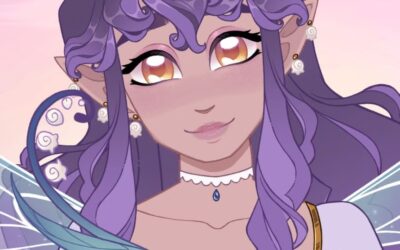
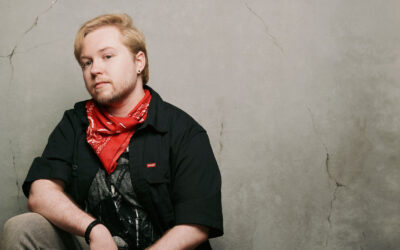
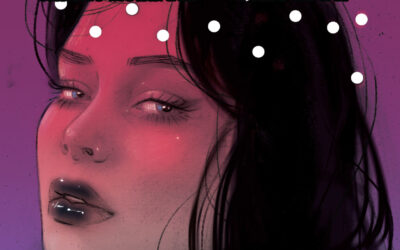
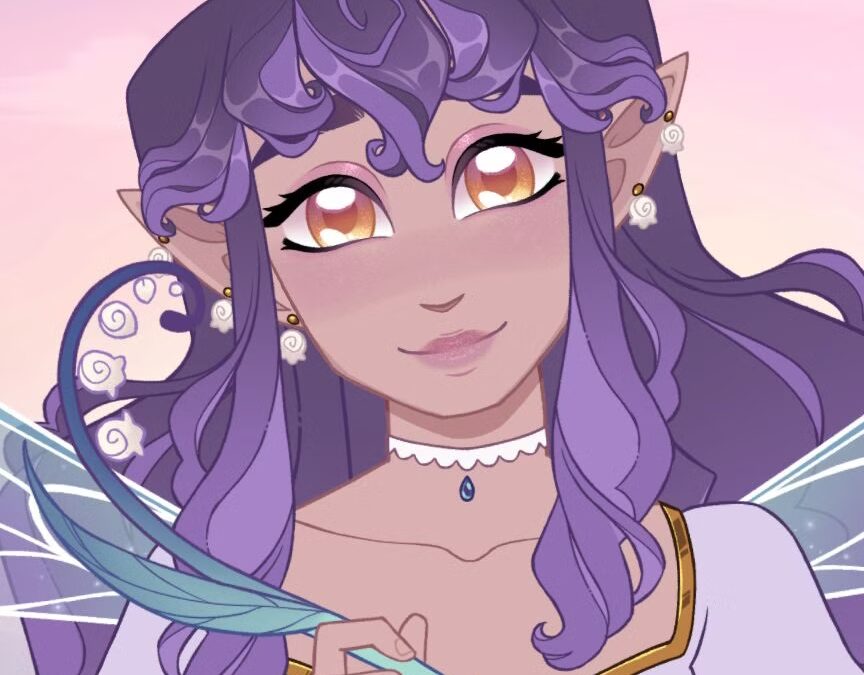
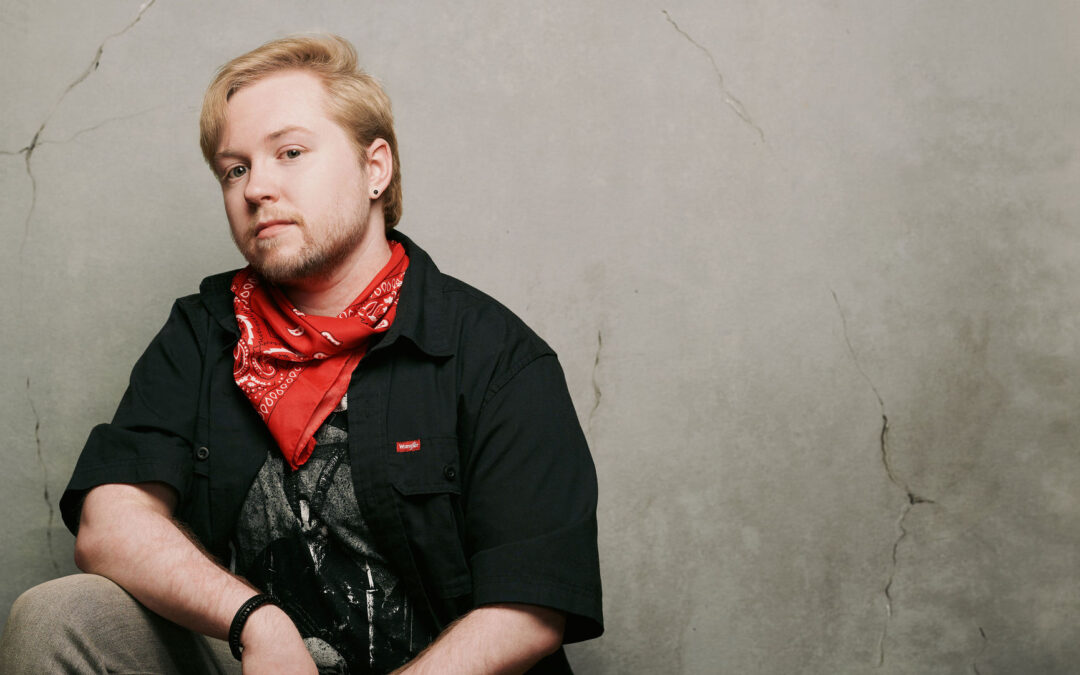
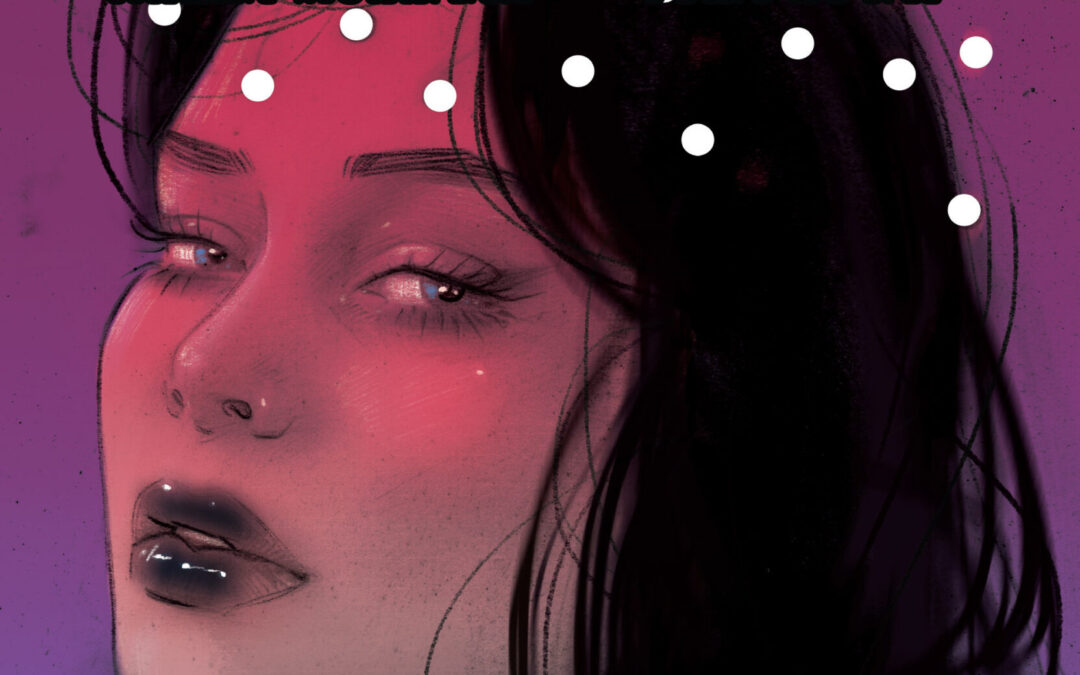
0 Comments